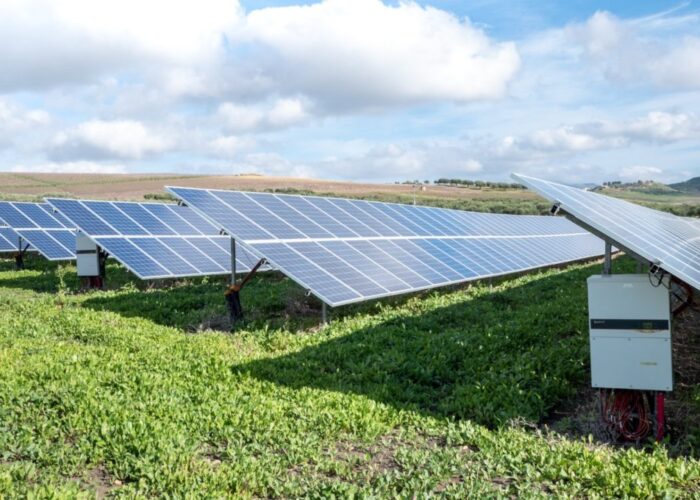First Solar has announced it has set yet another world record for cadmium-telluride (CdTe) PV research cell conversion efficiency, achieving 21.5% efficiency certified at the Newport Corporation's Technology and Applications Center (TAC) PV Lab.
According to First Solar the verified efficiency puts the company ahead of its own research cell roadmap.
Unlock unlimited access for 12 whole months of distinctive global analysis
Photovoltaics International is now included.
- Regular insight and analysis of the industry’s biggest developments
- In-depth interviews with the industry’s leading figures
- Unlimited digital access to the PV Tech Power journal catalogue
- Unlimited digital access to the Photovoltaics International journal catalogue
- Access to more than 1,000 technical papers
- Discounts on Solar Media’s portfolio of events, in-person and virtual
Demonstrating that production-scale performance is keeping pace with record R&D advancements, First Solar has also announced its commercial modules have passed the Atlas 25+ certification following a series of long-term combined-stress environmental exposure tests.
As with other records set in-house by the company, the latest results were said to have been fabricated at its Perrysburg, Ohio manufacturing factory and Research & Development Center using commercial-scale manufacturing equipment.
“Our latest research cell efficiency record is a result of continued learning in the material science and device physics of CdTe solar cells,” said Raffi Garabedian, First Solar's Chief Technology Officer. “Our work is not done in isolation, but is in part a result of the many fruitful collaborations we have with academia, national labs, and our industrial partners, most notably GE Global Research. The learning has enabled us to further optimize our fabrication processes and thereby boost the performance of practical devices further towards the theoretical limit.”
The company reiterated that its new technology roadmap revealed at its March, 2014 Analyst Day event demanded a 22% research cell efficiency milestone in 2015.
“Given the slope of our research cell improvements and the fact that it's still February, we remain confident that we'll meet or exceed our roadmap expectations,” said Garabedian.
On the reliability front, First Solar said that in late January, 2015, production modules achieved Atlas 25+ certification status, which is designed to push durability and degradation testing against accelerated environmental conditions experienced in long-term service.
According to Azmat Siddiqi, Senior Vice President for Quality and Reliability, First Solar modules passed the Atlas 25+ stress tests for all parameters, including power output, insulation resistance and visual damage in the hot/arid, subtropical, temperate and “global composite” climate simulations.
“The modules were tested against the most stringent standards available,” said Siddiqi. “We are proud to note that performance of our production modules is evolving hand in hand with other technology advances.”
Testing was said to have been conducted by Atlas Material Testing Technology, and that formal certification documentation will be issued by SGS, a leading inspection, verification, testing and certification organization recognized for providing global benchmarks for quality and integrity.
NREL's globally recognised efficiency chart for PV technologies has been updated to show First Solar's new record.







